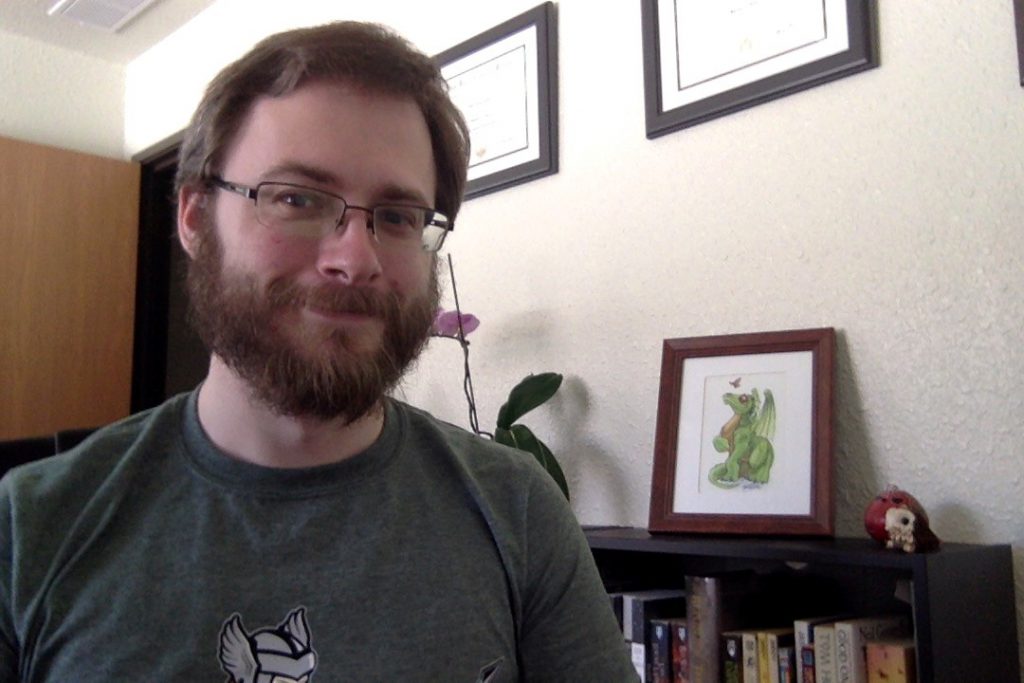Special Collections librarian John Henry Adams was awarded the William Reese Company Scholarship to attend California Rare Book School through Zoom in August. He shared his thoughts with us on his experience in the course.
What is your background in instruction?
JHA: I’m a new Special Collections librarian and most of my background in teaching comes from my time in English departments: I taught writing and literature for eight and a half years before I switched careers. While there is some overlap between English classes and special collections instruction, there are of course some major differences, the biggest being that as a Special Collections librarian, I’m usually not designing a full course but instead doing one specific session.
What course did you take, and what did you learn from it?
JHA: I took the seminar on Better Teaching with Rare Materials. We talked about doing more engaging, active-learning course sessions and we also talked a lot about how to do effective remote class sessions using special collections materials. We’re not going to be able to do in-person Special Collections sessions this fall, so that is going to be very useful.
I also got a much better understanding of learning objectives for individual class sessions, which will let me more carefully tailor my instruction to a course’s overall needs. Special Collections sessions can easily degenerate into being a cool field trip for the class to go see some neat things and learn some interesting information, but ideally we always want those sessions to build on a course’s overall objective without the instructor to have to do some heavy lifting the next session.
What might you do differently in the classroom as a result of this training?
JHA: I think I will be more transparent at the start of sessions as to how materials came to us in Special Collections, especially in sessions that take a more generalist approach. Special Collections are made up of lots of smaller collections, usually purchased from or donated by collectors, and that typically means limitations in terms of what is in the collection. Putting that information on the table at the start is important because it clarifies why the collection is what it is and why some things might not be in it.
The course also strengthened my general desire to focus on active learning and to keep as far away from a show-and-tell format as possible. Special Collections is already doing that, but it’s important to keep pushing that aspect and to give students a chance to experience the materials more fully.
